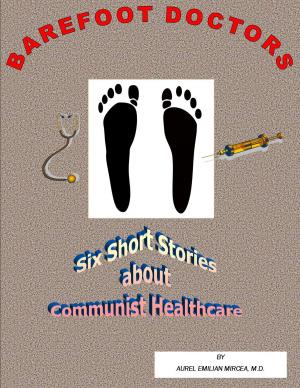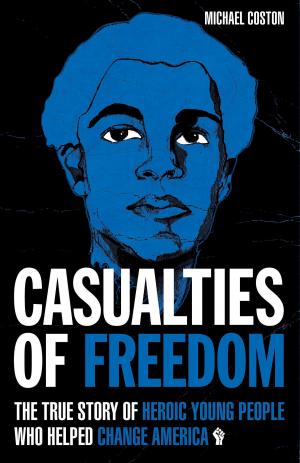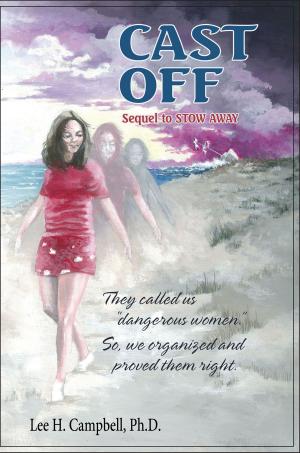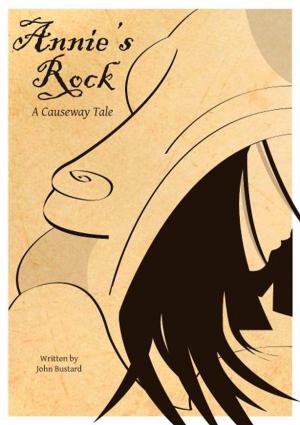| Author: | Aurel Emilian Mircea, M.D. | ISBN: | 9780985869359 |
| Publisher: | Book Baby | Publication: | July 20, 2015 |
| Imprint: | Language: | English |
| Author: | Aurel Emilian Mircea, M.D. |
| ISBN: | 9780985869359 |
| Publisher: | Book Baby |
| Publication: | July 20, 2015 |
| Imprint: | |
| Language: | English |
German Healer “Healthcare under Apartheid” Dr. Koch visited the South African Embassy in Bonn, ready to join the latest flow of physicians toward the land of the Boers. His wife was expecting their first baby and they were both hoping for a healthy boy, to grow up in the tropical climate, away from Europe’s cold winters. The newly married couple had had enough of the geopolitical turmoil that accompanied the Cold War and divided Germany in two opposing nations. They have both decided to live in tranquility, far away from the Iron Curtain and its daily warring threats. The shortage of health professionals in the Republic of South Africa had opened new doors of professional opportunities for physicians of all nationalities. The medical community in West Germany reverberated with news about lavish colonial lifestyle and great salaries. All a qualified doctor had to do was to sign up a three-year-long contract with the authorities from Pretoria and be ready to relocate soon. The smooth flight from Munich to Johannesburg ended on the tarmac at Jan Smuts Airport. From there, a short but rough ride followed in a hunting, safari Jeep driven by Dr. Brian. Of Scottish heritage, the young South African physician had played the role of a greeting party, on behalf of Far East Rand Hospital from the gold city of Springs. The African Bush Telegraph described that wealthy town, as having more working gold mines, than practicing doctors. An enthusiastic medical brotherhood openly adopted Dr. Koch, helping him with his transition to the new professional world. A close network of multinationals taught him how to practice medicine, in the strictly segregated healthcare system under the Apartheid. For Bantu patients, local practitioners employed a fusion of modern pharmacology and traditional African remedies. By successfully using the newly learned cures, the immigrant from Hamburg was promptly nicknamed by his grateful patients, the German Healer. At the peak of his medical career, Dr. Koch became a partner in a private Bantu Practice, in the city of Johannesburg. Assigned exclusively for the black commuters from the industrial district of Jeppestown, it soon became a gold mine for the two partners. However, within a few years Dr. Koch found himself once again at the geopolitical crossroads. The unrest in the African subcontinent and the rioting in the shantytowns brought the economy to a halt. With his life at risk, after a few narrow escapes, Dr. Koch had a change of mind. He gave up the tropical heaven in exchange for a safer life, for his wife and two small boys. Joining the ensuing medical exodus from South Africa, he left the private practice to resettle in the USA. One hair-raising transatlantic flight later, put him and his wife Gretchen on the tarmac at La Guardia Airport. Lucky, as only a German Healer could be, he joined a successful private practice in one of the most dynamic industrial cities, in the subtropical paradise of Texas.
German Healer “Healthcare under Apartheid” Dr. Koch visited the South African Embassy in Bonn, ready to join the latest flow of physicians toward the land of the Boers. His wife was expecting their first baby and they were both hoping for a healthy boy, to grow up in the tropical climate, away from Europe’s cold winters. The newly married couple had had enough of the geopolitical turmoil that accompanied the Cold War and divided Germany in two opposing nations. They have both decided to live in tranquility, far away from the Iron Curtain and its daily warring threats. The shortage of health professionals in the Republic of South Africa had opened new doors of professional opportunities for physicians of all nationalities. The medical community in West Germany reverberated with news about lavish colonial lifestyle and great salaries. All a qualified doctor had to do was to sign up a three-year-long contract with the authorities from Pretoria and be ready to relocate soon. The smooth flight from Munich to Johannesburg ended on the tarmac at Jan Smuts Airport. From there, a short but rough ride followed in a hunting, safari Jeep driven by Dr. Brian. Of Scottish heritage, the young South African physician had played the role of a greeting party, on behalf of Far East Rand Hospital from the gold city of Springs. The African Bush Telegraph described that wealthy town, as having more working gold mines, than practicing doctors. An enthusiastic medical brotherhood openly adopted Dr. Koch, helping him with his transition to the new professional world. A close network of multinationals taught him how to practice medicine, in the strictly segregated healthcare system under the Apartheid. For Bantu patients, local practitioners employed a fusion of modern pharmacology and traditional African remedies. By successfully using the newly learned cures, the immigrant from Hamburg was promptly nicknamed by his grateful patients, the German Healer. At the peak of his medical career, Dr. Koch became a partner in a private Bantu Practice, in the city of Johannesburg. Assigned exclusively for the black commuters from the industrial district of Jeppestown, it soon became a gold mine for the two partners. However, within a few years Dr. Koch found himself once again at the geopolitical crossroads. The unrest in the African subcontinent and the rioting in the shantytowns brought the economy to a halt. With his life at risk, after a few narrow escapes, Dr. Koch had a change of mind. He gave up the tropical heaven in exchange for a safer life, for his wife and two small boys. Joining the ensuing medical exodus from South Africa, he left the private practice to resettle in the USA. One hair-raising transatlantic flight later, put him and his wife Gretchen on the tarmac at La Guardia Airport. Lucky, as only a German Healer could be, he joined a successful private practice in one of the most dynamic industrial cities, in the subtropical paradise of Texas.















